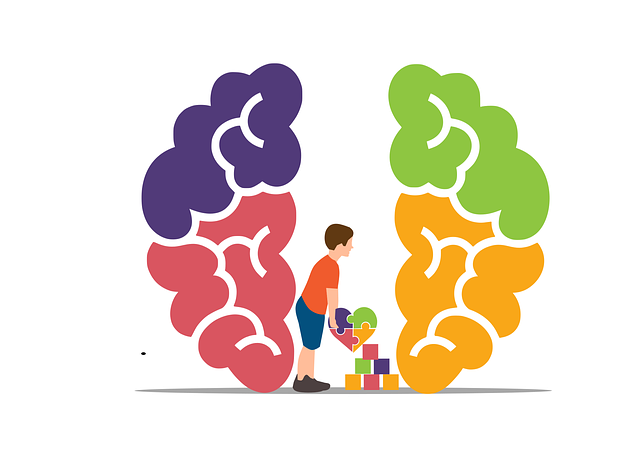Resilience-focused therapy, particularly using the RFM (Recovery, Flexibility, Mastery) framework, is crucial in crisis counseling for children. This approach equips them with coping skills, enhances mental wellness, and builds confidence by teaching calmness, perspective adaptation, and control. Through safe spaces and effective communication, counselors help process emotions and develop emotional regulation skills. Community outreach programs bring this therapy directly to families, fostering a supportive environment that encourages resilience and healthy development in young minds. Age-appropriate exercises through play, storytelling, and role-playing empower children with tailored coping mechanisms for future challenges.
“Resilience is a powerful tool for children to navigate life’s challenges, and RFM (Recovery, Flexibility, and Mastery) exercises have emerged as an effective framework. This article explores how RFM can build resilience in children, focusing on crisis counseling’s impact and practical guides for therapists. We delve into the science behind RFM, offering insights into its role in enhancing young minds’ ability to cope with trauma or stress. By understanding these concepts, parents and therapists can empower children to develop mental fortitude, ensuring they emerge stronger from adversity.”
- Understanding RFM and Its Role in Child Resilience
- The Impact of Crisis Counseling on Young Minds
- Designing Effective Resilience Building Exercises
- Implementing RFM in Practice: A Therapist's Guide
Understanding RFM and Its Role in Child Resilience

Resilience is a vital asset for children to navigate life’s challenges and adversities. RFM (Recovery, Flexibility, and Mastery) is a powerful framework that plays a significant role in fostering child resilience. This approach recognizes that building resilience isn’t just about enduring hardship but also about thriving after it. By focusing on these three key components, children can develop effective coping skills, enhance their mental wellness, and gain a sense of confidence boosting.
In the context of therapy for children and crisis counseling, RFM exercises are designed to help young individuals understand and manage their emotions during stressful situations. Recovery involves learning strategies to calm down and regain composure, while Flexibility equips them with adaptive thinking skills to view challenges from different perspectives. Mastery focuses on encouraging a sense of control and competence by setting achievable goals and celebrating successes, thereby strengthening their overall mental resilience.
The Impact of Crisis Counseling on Young Minds

Crisis counseling plays a pivotal role in shaping the resilience of young minds during challenging times. For children and adolescents, who are particularly vulnerable to the impacts of trauma and stress, specialized therapy becomes an essential tool for navigation through crises. This type of counseling offers a safe space where young individuals can express their emotions, fears, and anxieties freely. Through effective communication strategies, counselors help them make sense of overwhelming situations, fostering emotional regulation skills that will serve them well in the long term.
Implementing community outreach programs with trained professionals ensures that crisis counseling is accessible to those who might not otherwise seek help. These initiatives empower both children and their families by providing practical tools for managing crises and enhancing overall mental health. By integrating these programs into schools, communities, and support networks, we can create a supportive environment that nurtures resilience and promotes healthy development in young minds.
Designing Effective Resilience Building Exercises

Designing effective resilience building exercises for children involves tailoring activities that promote positive thinking and emotional intelligence while offering practical crisis intervention guidance. Therapists should consider age-appropriate, engaging scenarios that mimic real-life challenges, such as managing anger or coping with anxiety. Incorporating play therapy, storytelling, and role-playing can make these exercises both enjoyable and impactful, fostering a child’s innate ability to adapt and bounce back from adversity.
The key lies in balancing structured activities with flexible approaches that cater to individual needs. By integrating crisis counseling techniques into the exercises, therapists enable children to develop effective coping mechanisms tailored to their unique experiences. Enhancing emotional intelligence through these resilience-building initiatives empowers kids to navigate future crises with greater confidence and composure.
Implementing RFM in Practice: A Therapist's Guide

Implementing RFM (Recovery, Flexibility, and Mastery) in therapy sessions for children facing crises or trauma is a powerful approach to enhance their resilience. This technique encourages young clients to develop coping skills that enable them to navigate challenging situations with increased adaptability and emotional strength. Therapists can guide children through exercises that foster a sense of control and empower them to view setbacks as opportunities for growth, thereby improving their overall mental wellness.
When integrating RFM into therapy, therapists should begin by helping children identify their unique resources, both internal and external. This process involves encouraging self-awareness and recognizing personal strengths. For instance, in the context of crisis counseling, a child might realize their ability to remain calm under pressure as a valuable resource. Therapists can then facilitate activities that promote flexibility, such as role-playing scenarios that challenge children to adapt to unexpected changes, thereby strengthening their problem-solving abilities. The ultimate goal is to support children in mastering difficult emotions and situations, allowing them to emerge with enhanced confidence and improved coping strategies, which will be beneficial for various aspects of their lives, including the production of engaging mental wellness podcast series.
Resilience is a vital asset for children to navigate life’s challenges, and RFM (Recovery, Flexibility, and Mastery) exercises offer a powerful framework. By integrating crisis counseling techniques, therapists can design effective interventions that foster resilience in young minds. This article has explored the significance of RFM, its role in building resistance to trauma, and provided practical guidance for therapists seeking to implement these strategies. Through tailored exercises, children can develop coping mechanisms, enhance flexibility, and acquire a sense of mastery over their lives, ultimately strengthening their ability to bounce back from adversity. With the right tools, therapy for children crisis counseling can be transformative, empowering young individuals to thrive despite life’s ups and downs.














